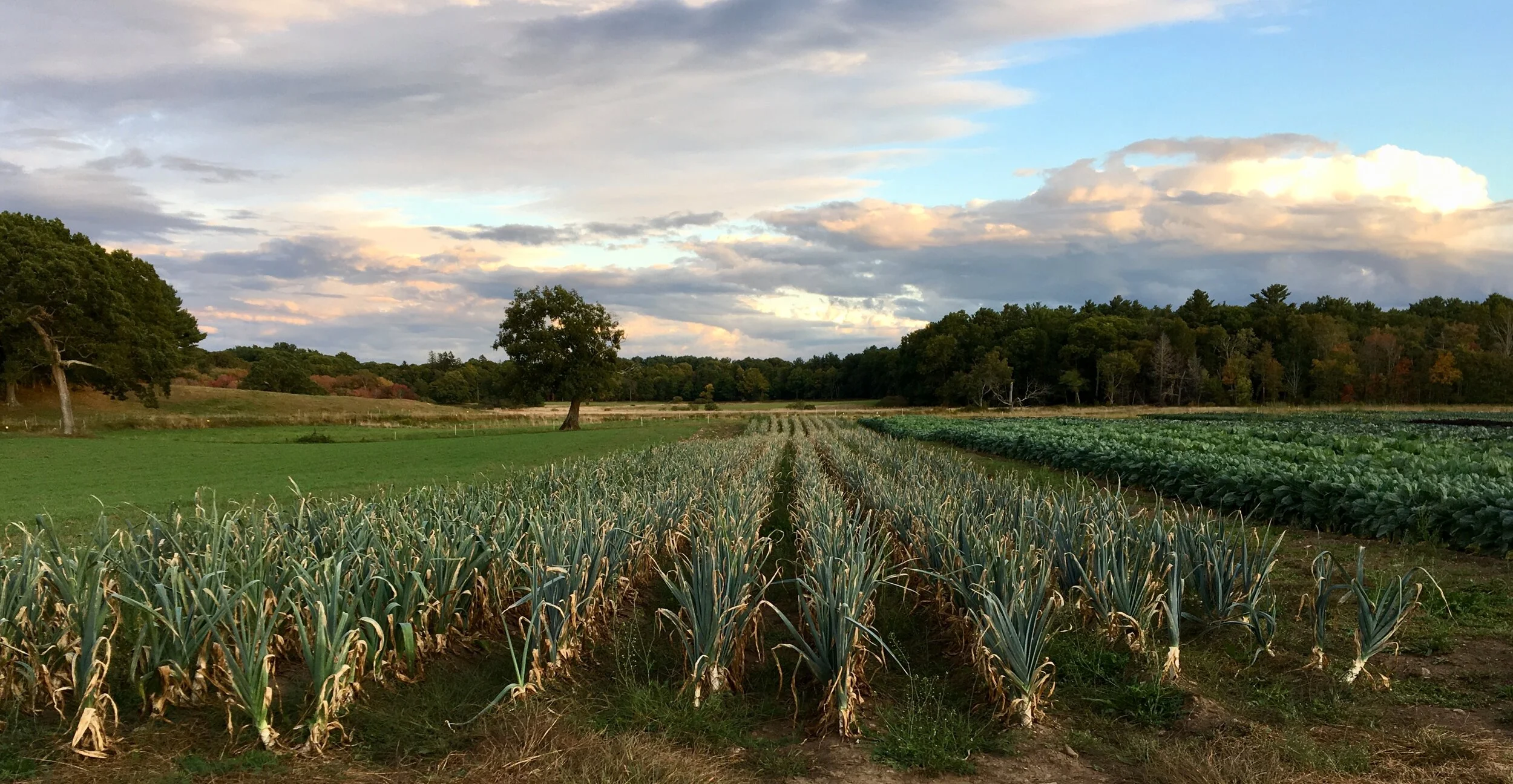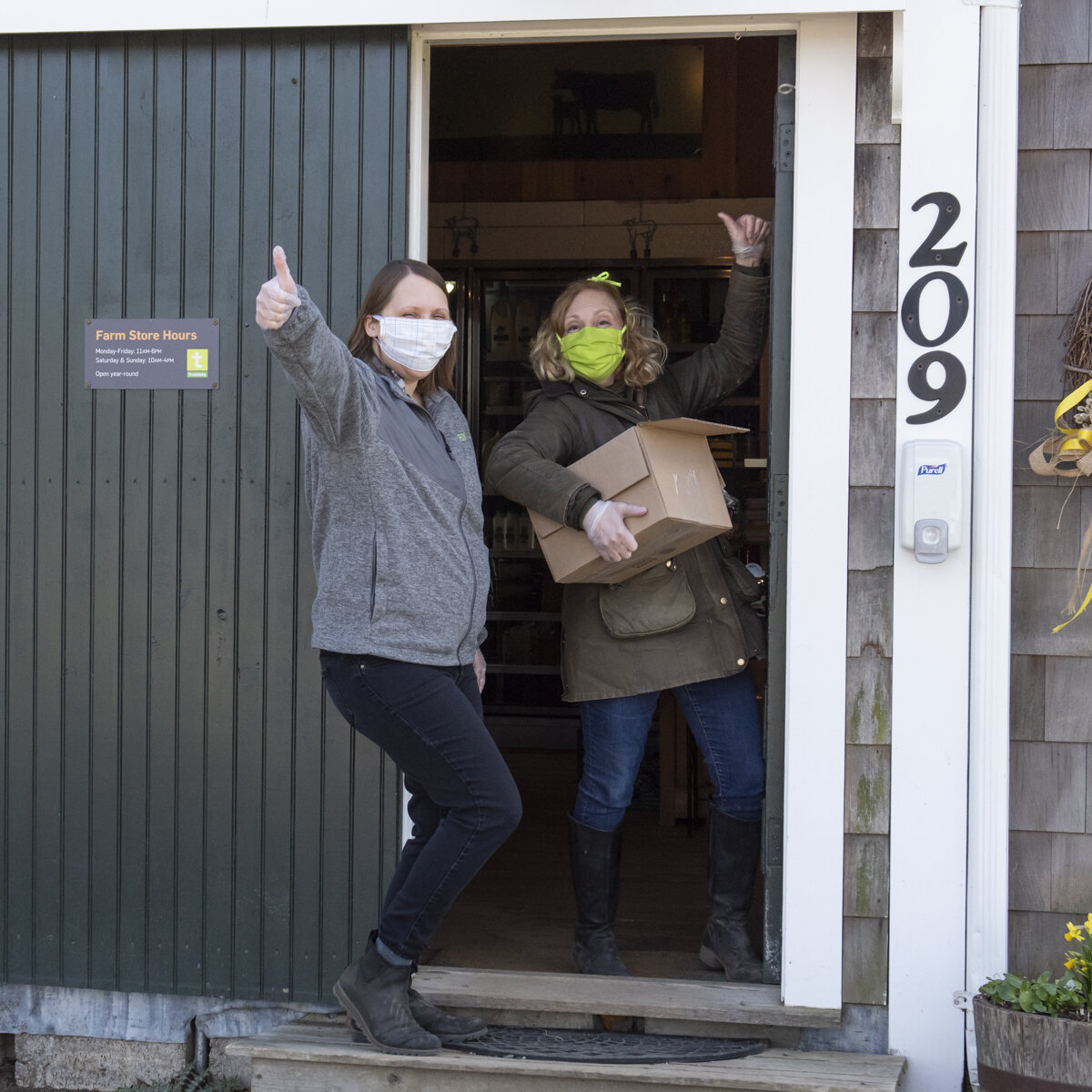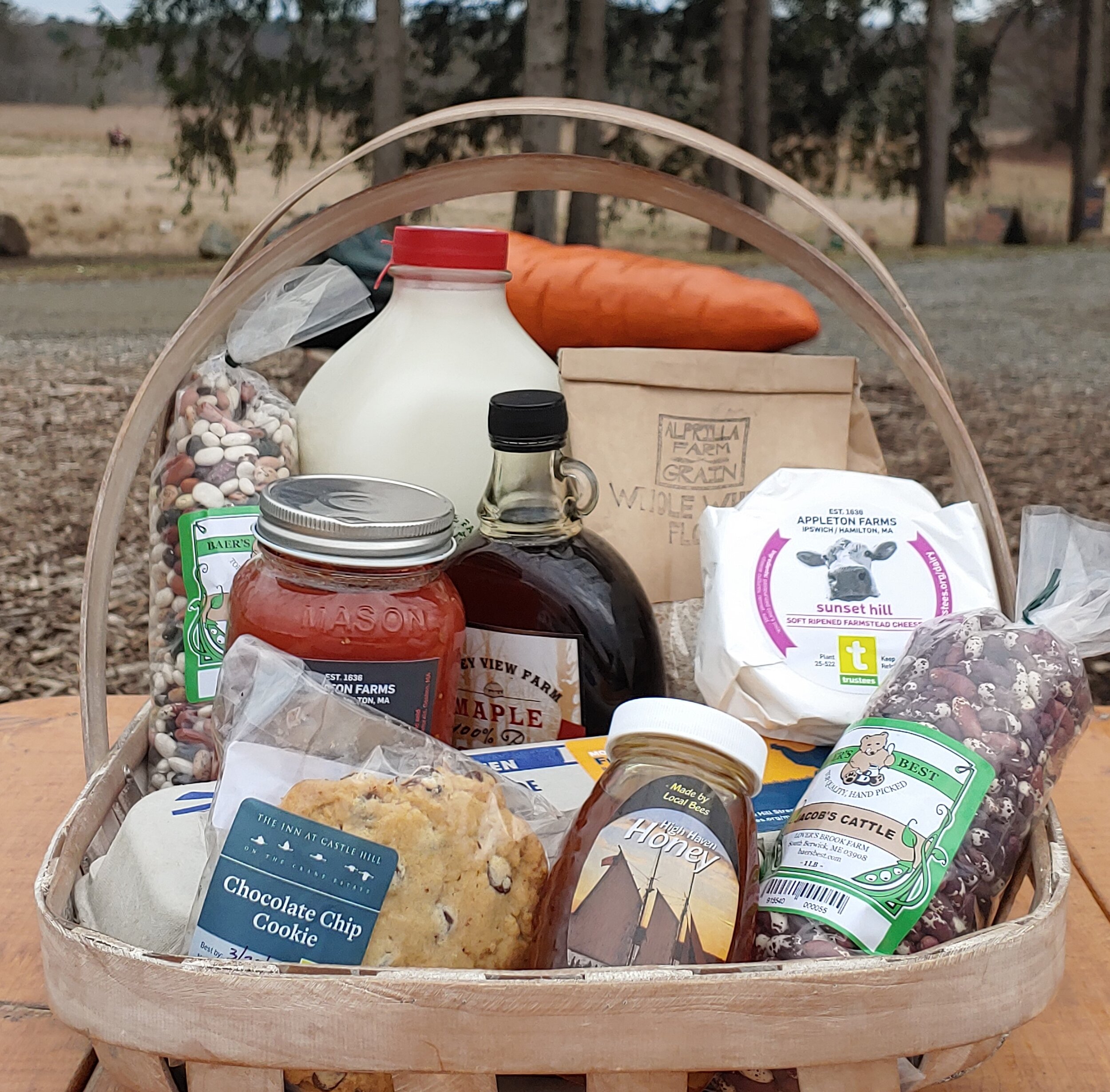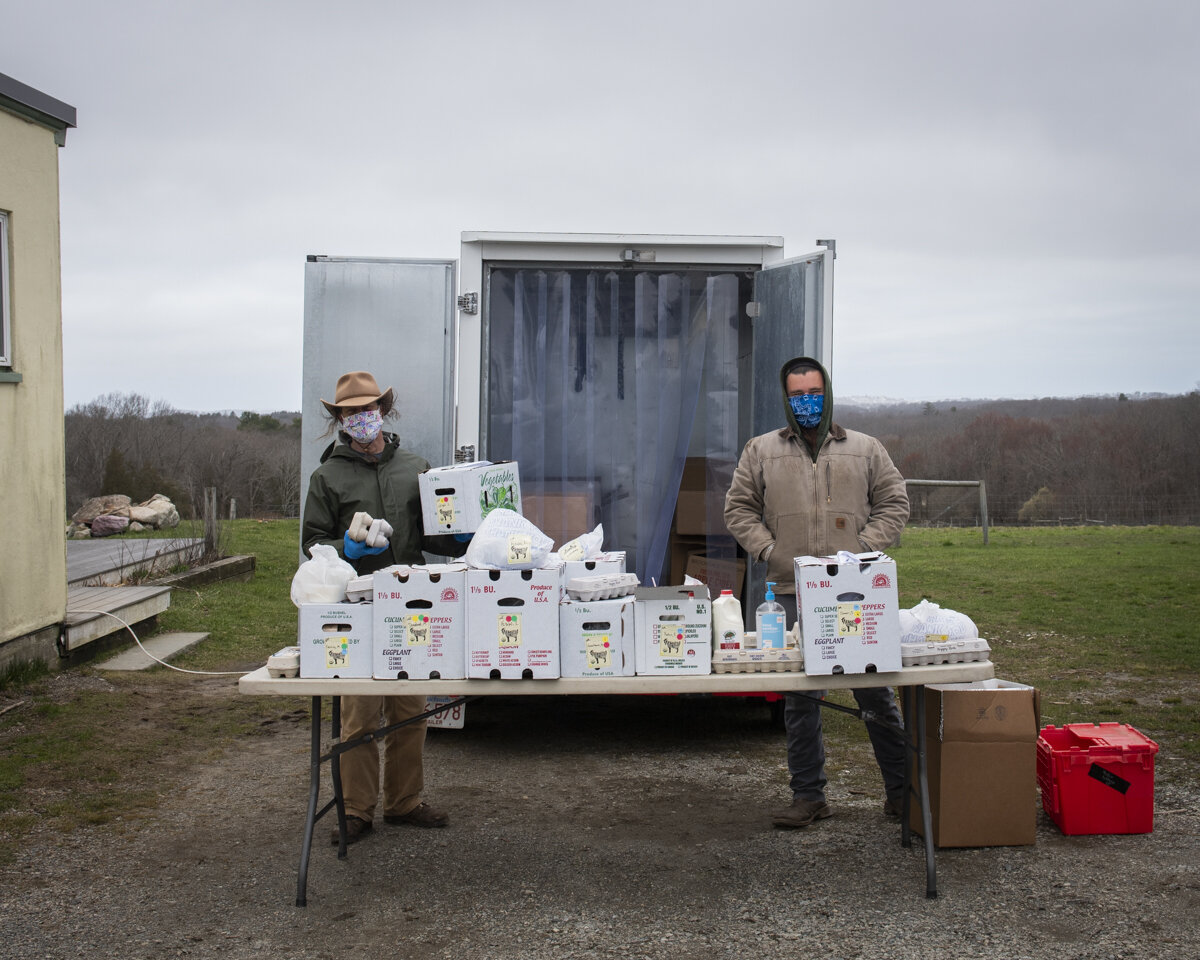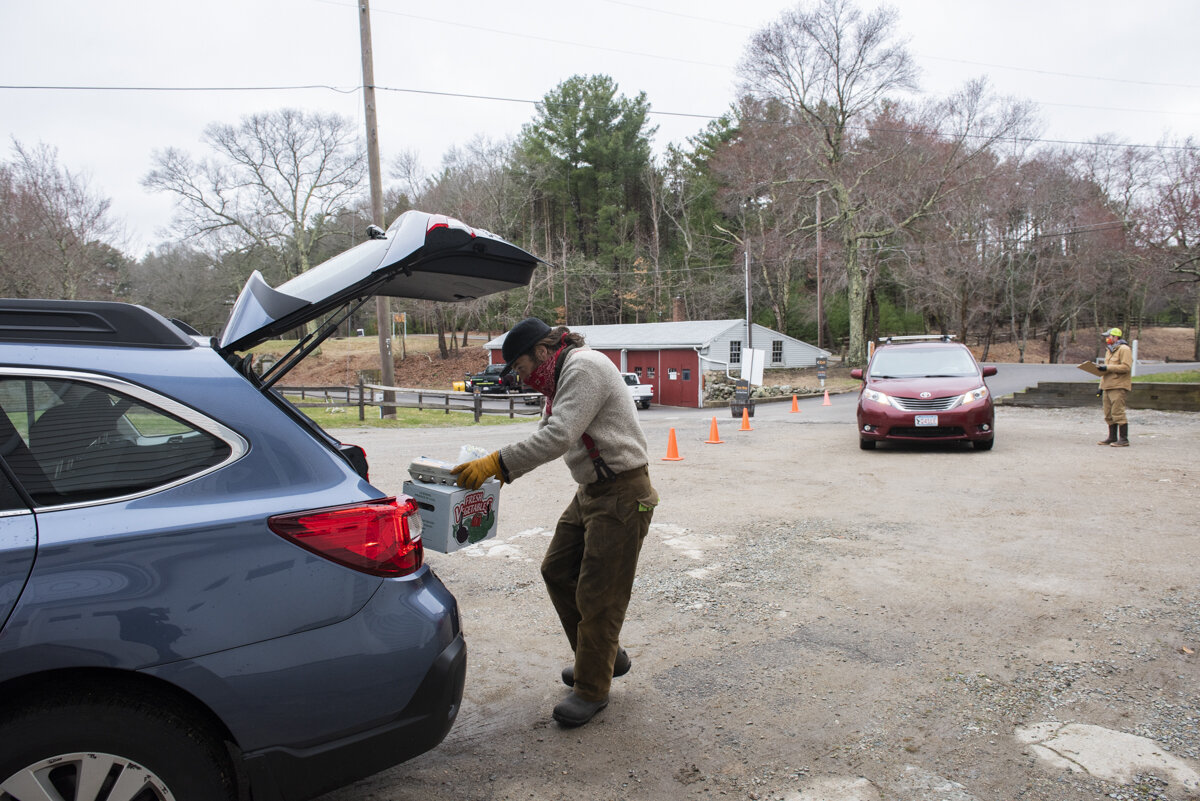Farm Fresh: The Trustees of Reservations expand CSA programs to offer more fresh produce during pandemic
Appleton Farms Homefield Leeks; photo provided by The Trustees
A number of winters ago my mother-in-law, an avid gardener, conducted an experiment. She did it for the benefit of my children, who were young at the time, but the results stayed with me. She bought a tomato—possibly beefsteak—at the grocery store and left it on the kitchen island. At times she placed it on the windowsill, which even in the New England winter received sporadic sunlight. Her hypothesis—that despite the passage of time and exposure to light, this tomato would not ripen—bore out in front of our eyes. Each visit that winter we marveled at the tomato that wouldn’t age. It remained, until an early spring demise in the trash bin (no gardener would dare add that to the compost), waxy, dull and putrid-red; firm and solid outside, of unknown genetic makeup inside.
She made her point, even if my kids didn’t get it: No one should eat produce so untethered from nature as to resist its innate characteristics. But this has become the norm—produce aisles overflowing with out-of-season fruits and vegetables, flown across the globe or grown in a lab. As commercial farming increasingly relies on technological, chemical and genetic advances to increase scale and shelf life, grocery store produce looks more and more like something from an experiment rather than a garden.
Appleton Farms, Ipswich; photo provided by The Trustees
Nationally, it’s a difficult time to be a farmer. Faceless industrial farms aside, many factors have devastated small and medium sized farms (the trade war, severe weather resulting from climate change, globalization driving down prices), worsening the already tough conditions which have been hurting farmers for generations: The U.S. lost more than 100,000 farms in the years between 2011 and 2018, 12,000 of those between 2017 and 2018. And the COVID-19 pandemic has worsened the already bleak landscape as it interrupts the food supply chain in infinite ways. On Tuesday, the Trump Administration rolled out plans for distributing $16 billion in direct payments to farmers and ranchers hit hard by the current economy, but agriculture groups worry it won’t be enough to get farmers through the crisis.
Here in Massachusetts, where interest in locally grown food has been on the rise for years, the pandemic has made the demand even more urgent. The nonprofit The Trustees of Reservations, which in addition to managing over 47,000 acres of open space and 350 miles of hiking trails, owns and operates six working farms, stepped up early to meet the demand.
Under the guidance of Liz Green, Associate Director of Agriculture Programs for The Trustees, Appleton Farms in Ipswich, Powisset Farm in Dover, Chestnut Hill Farm in Southborough and Weir River Farm in Hingham all stepped up production and expanded their existing Community Supported Agriculture (CSA) programs. They also created a new online ordering system and a safe, contact-free pickup protocol. Now area residents can order fresh produce online in advance of their visit and enjoy safe, contact free pickup at the four local farms.
“We are encouraged by the enthusiasm and popular demand for local, farm-fresh food options from our communities and look forward to offering this online ordering and no-contact pickup service to even more people.” she explained.
Green, who has been a farmer for over ten years, attributes the rising popularity of locally grown food and the surge of demand during the pandemic to trust. She says people trust that these small local farms are safe. They know that when the farms say they abide by current safety guidelines, they mean it. She also points to the uncertainty of supply from national producers.
As she puts it, “Industrial farming is in crisis. The grocery store is grim.”
Green sees how much people enjoy coming to the farm for the contact-free outdoor pickup and meeting the people who grow the food they’re eating. She believes the smaller scale feels more comfortable for residents weary of XL grocery stores with their large number of staff and shoppers. And having the chance to interact with people who work on the farm is part of the Trustees’ mission. Green believes the expansion of the CSA programs and the utilization of online ordering, as well as new programming conforming to state safety guidelines, will continue even when shelter-in-place orders lift.
Over the last 15 years, The Trustees of Reservations has steadily increased their commitment to support Massachusetts agriculture. In fact, today The Trustees is among the largest private owners of farmland in the state, with a combined 2,000+ agricultural acres. Their farms’ four produce CSA programs and one meat CSA together boast 1,300 members.
“During this time of uncertainty about our economy and our overall health and well-being, we are thrilled we can expand our farm operations to provide a platform for increased access to delicious and nutritious food from Trustees farms and area farm partners,” said Trustees President & CEO Barbara Erickson in a statement.
Jess from Powisset packing orders at Chestnut Hill Farm, Southborough; photo courtesy of The Trustees
Demand is so high that all Trustees’ CSAs have all already sold out. But fear not, just-picked vegetables (as well as a large range of products from partner farms, producers and artisans) can be yours from any one of the four participating farms, through the online ordering system. Here’s an insider tip: In order to get the best choices, visit the site right around 6:00pm on Mondays. This is usually when the store refreshes with new stock.
I, for one, will feel better when I know the tomatoes in my Caprese salad grew out of soil I can smell on a nearby farm, were picked by happy people with a passion for protecting the land and will ripen, quickly and lushly, while basking in the sun on my windowsill.
Powisset Farm, Dover; photo provided by The Trustees
For more information on the Trustees’ CSA programs, click here.
This story appeared as an Online Exclusive in May 2020.

